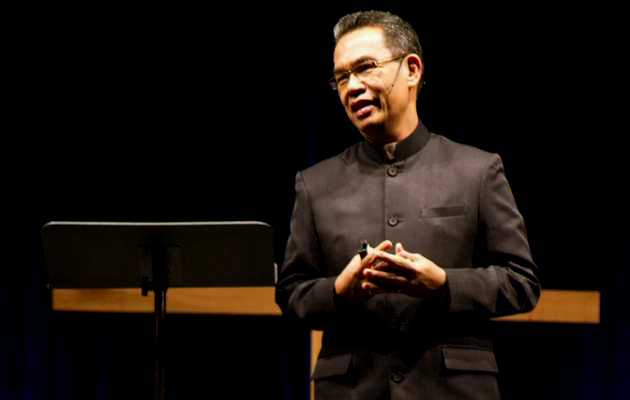World Evangelical Alliance head condemns religious violence, urges Israeli-Palestinian dialogue

All religions can generate extremists, according to the general secretary of the World Evangelical Alliance – but Christian teaching about salvation through Christ rejects all kinds of religious violence.
Bishop Efraim Tendero was giving the keynote speech at the Christ at the Checkpoint conference in Bethlehem. He urged Christians to recognise their own history of violence and pleaded with Israelis and Palestinians to "honestly engage in dialogue" with each other.
Tendero said: "In North America the Ku Klux Klan killed hundreds of African-Americans and burned down many schools and churches in the name of a 'pure' Christianity. In European history we find too many examples of Christians promoting violence against Jews. Such extremism is everywhere and people, women, men and children alike, are caught up in its violence."
However, he said: "It is the nature of religions to make truth claims, about what ultimately exists, and how people relate to the divine. A religion becomes extremist when it uses force or violence to impose truth claims on other people or to apply those truth claims to its own members. As religious leaders, it is our duty and call to promote, to teach, to foster the peace in our traditions."
He stressed the precarious position of minorities, including evangelicals, in some countries where religious nationalism was a factor. "The adherents of other religions are seen as not truly belonging there, as not enjoying the full rights of citizens of that nation. The risk of violence against minority religions increases, often motivated by the desire to protect, the religious identity of one's nation. Evangelicals around the world suffer greatly from this form of oppression and this is one important dimension of the conflicts between Jews and Palestinians."
He said that "Salvation is by faith alone, not by cultural or national identity" and that "Because loving God and our neighbours is the center of our faith and life, we have to overcome any tendency toward violence in our hearts and in our communities."
Tendero spoke of his own experiences of peacemaking and dialogue in the Philippines before urging Israelis and Palestinians to engage in dialogue.
"We Christians have asked for forgiveness from each other and from other religious communities for practising discrimination and persecution in the past," he said. "Please do the same! It would be better for you to argue vehemently on opposite sides of a table than to build walls or launch bombs."
He also called for the Palestinian Authority and the State of Israel to allow national evangelical alliances to be legally recognised so they could "properly and officially represent their faith communities". "Such a step would be appreciated by the 600 million Christians around the world, who identify themselves as evangelicals, and for all who seek concrete ways to promote peace and reconciliation in this troubled world," he said.
Tendero urged both sides to "Step back from making exclusive territorial claims related to your religion, such that people who do not share your religion cannot live in peace with you."











